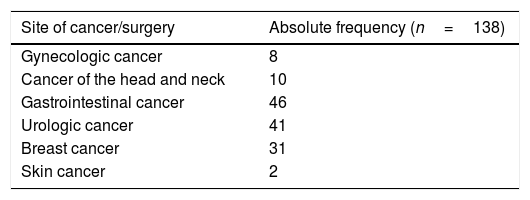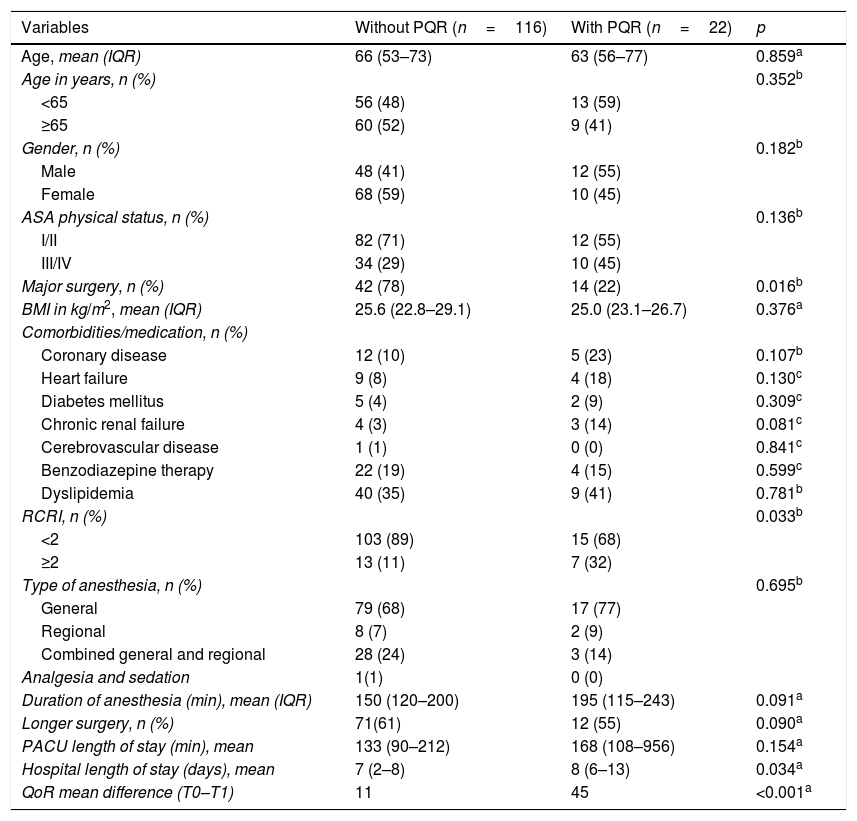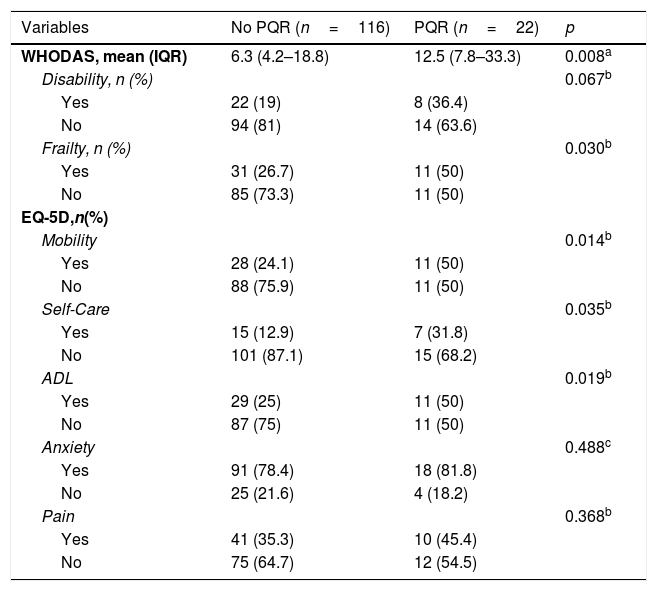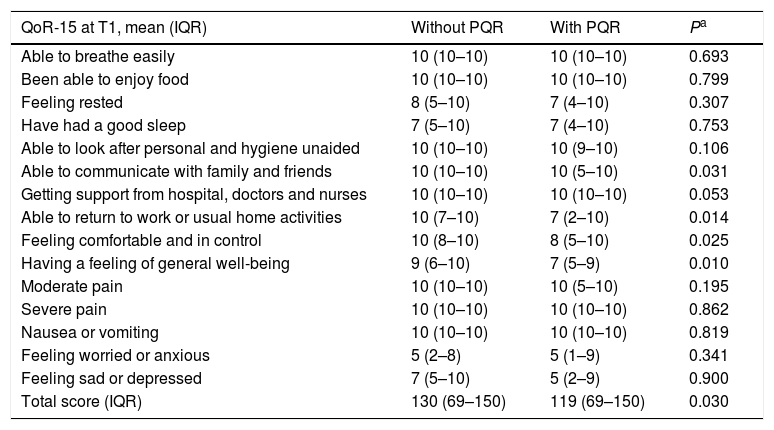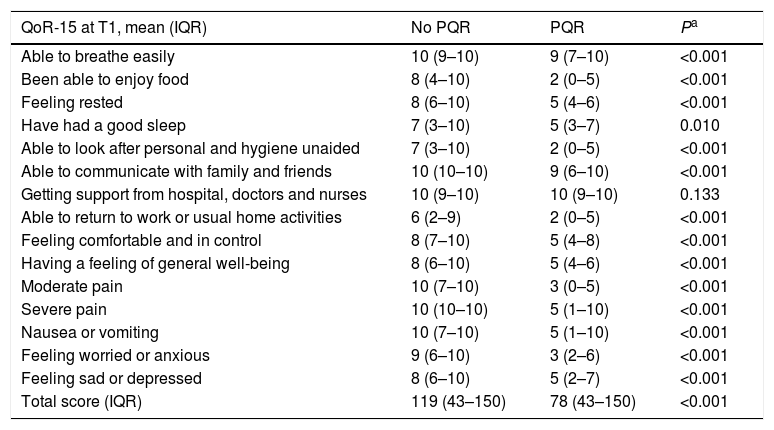Assessment of quality of recovery is important as an end-point for outcome research. This study aims to determine the incidence and determinants of poor quality of recovery (PQR) after surgery in patients scheduled for curative neoplastic surgery.
Materials and methodsAn observational prospective study was performed in consecutive patients undergoing surgery for cancer treatment. The quality of recovery 15 score (QoR-15) was applied on the day before surgery (T0) and 24h after surgery (T1). PQR was defined for patients with a QoR-15 score lower than the mean QoR-15 score at T1 minus one standard deviation. Preoperative quality of life was assessed with EuroQol-5D. Frailty and disability were defined using Clinical Frailty Scale and World Health Organization Disability Assessment Schedule 2.0.
ResultsOne hundred and thirty-eight patients were enrolled and 31 (15.9%) were identified as having PQR. At T0, patients with PQR presented lower scores on total QoR-15 (p=0.03) and had more problems on EuroQol-5D in mobility (p=0.014), self-care (p=0.027) and usual activities domains (p=0.019). The difference of QoR-15 score between T1 and T0 was higher in PQR patients (p<0.001). PQR had more frequently Revised Cardiac Risk Index (RCRI)≥2 (p=0.012) and were more frequently frail (p=0.03). PQR patients stayed longer in the hospital (p=0.034).
ConclusionPQR patients had lower QoR-15 before surgery, poor quality of life, were more frequently frail and had high cardiac risk factors. PQR patients stayed longer in the hospital.
Evaluar la calidad de la recuperación es importante como objetivo de la investigación de resultados. El objetivo de este estudio fue determinar la incidencia y los factores determinantes de la mala calidad de la recuperación (MCR) después de la cirugía en pacientes sometidos a cirugías neoplásicas con intención curativa.
Materiales y métodosEstudio observacional prospectivo en pacientes consecutivos sometidos a cirugía para el tratamiento del cáncer. La puntuación Quality of Recovery 15 (QoR-15) se aplicó antes de la cirugía (T0) y 24h después (T1). La MCR se definió para los pacientes con una puntuación QoR-15 inferior a la media en T1 menos una desviación estándar. La calidad de vida preoperatoria se evaluó con el cuestionario EuroQol-5D y se utilizaron las escalas Clinical Frailty Scale y World Health Organization Disability Assessement Schedule 2.0.
ResultadosSe seleccionaron138 pacientes y se identificaron 31 (15,9%) con MCR. En T0, los pacientes con MCR presentaron puntuaciones totales más bajas en QoR-15 (p=0,03) y más problemas en EuroQol-5D en cuanto a movilidad (p=0,014), autocuidado (p=0,027) y actividades cotidianas (p=0,019). La diferencia de la puntuación QoR-15 entre T1 y T0 fue mayor en los pacientes con MCR (p<0,001), quienes tenían con más frecuencia un Índice de Riesgo Cardiovascular Revisado (RCRI)≥2 (p=0,012), reflejaron fragilidad más frecuentemente (p=0,03) y permanecieron más tiempo internados en el hospital (p=0,034).
ConclusiónLos pacientes con MCR tuvieron puntuaciones de QoR-15 más bajas antes de la cirugía, peor calidad de vida, más fragilidad, tenían más factores de riesgo cardíaco y permanecieron más tiempo internados en el hospital.






